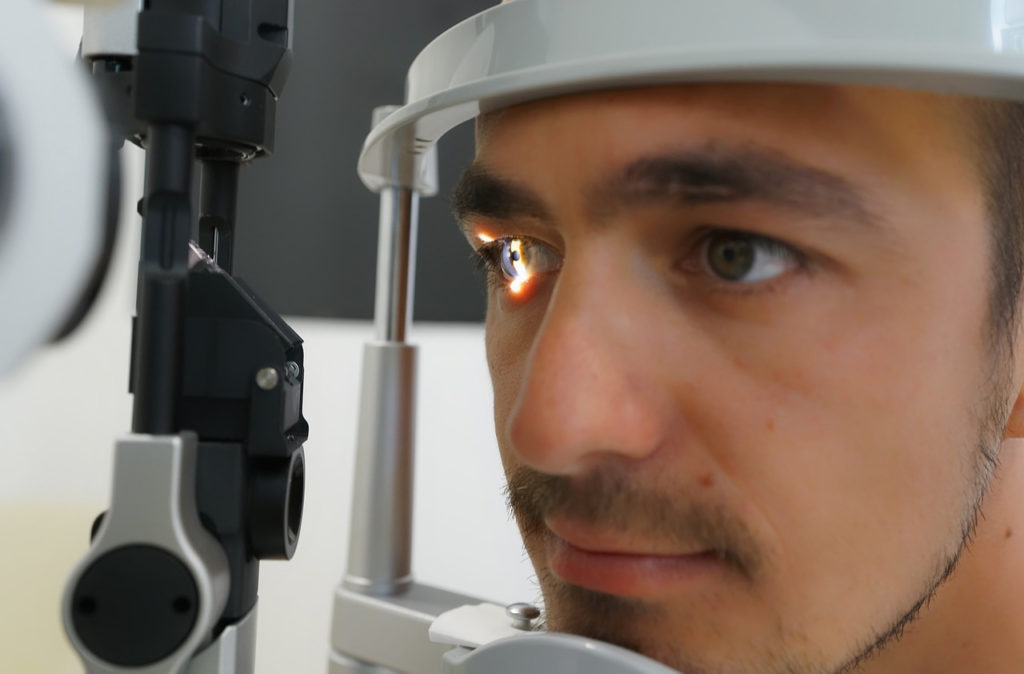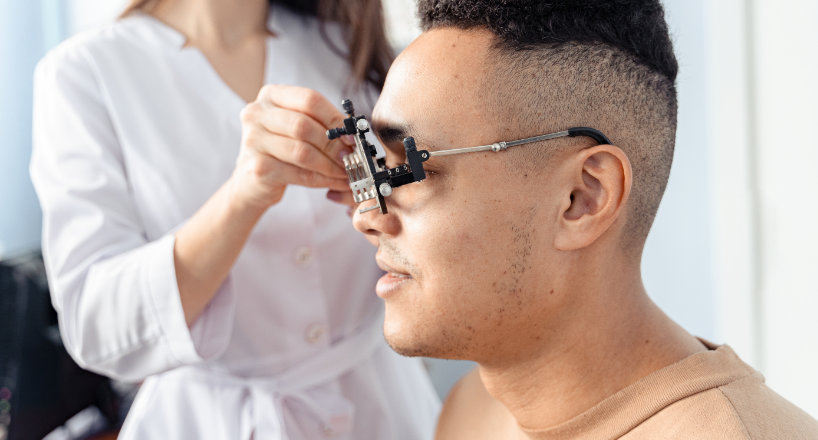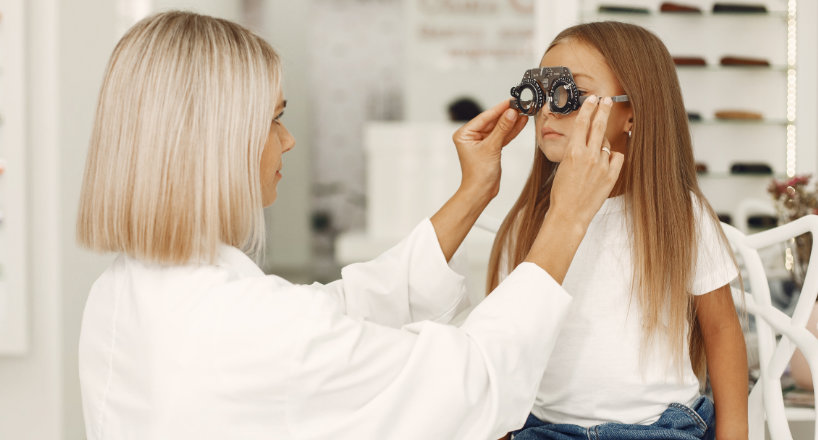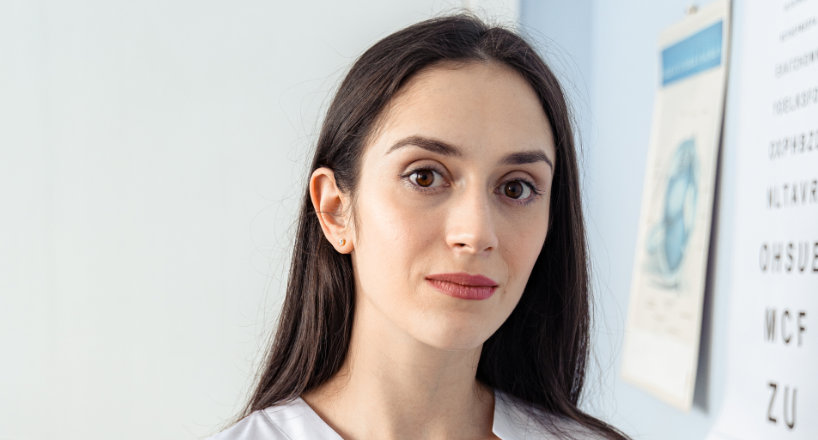There are a few things you can do to prepare for an eye exam:

- Bring your current glasses or contact lenses: If you currently wear glasses or contact lenses, bring them to the exam. This will allow the optometrist or ophthalmologist to see how well they are working for you and make any necessary adjustments.
- Make a list of any symptoms you are experiencing: If you have any symptoms such as eye pain, redness, or blurry vision, make a list of them to share with the doctor during the exam.
- Know your medical history: Be prepared to discuss your medical history with the optometrist or ophthalmologist, including any eye conditions or diseases that run in your family, as well as any other medical conditions or medications you are currently taking.
- Wear comfortable clothing: Wear comfortable clothing to the exam, and avoid wearing any perfumes or colognes as they can irritate the eyes.
- Bring your insurance information: If you have a vision or health insurance, bring your insurance card and any other relevant information to the exam.
- Know your schedule: If you have any questions or concerns about the exam, or if you have any specific requests, let the doctor know before the exam starts.
It’s important to arrive on time for your appointment, as well as to be prepared to answer any questions the doctor may have about your vision and overall health.
The Difference Between an Optometrist (OD) and an Ophthalmologist (MD or DO)
An optometrist (OD) and an ophthalmologist (MD or DO) are both eye care professionals, but they have different levels of education and training, and they provide different types of care.
An optometrist is a primary eye care provider who specializes in the examination, diagnosis, treatment, and management of common eye disorders, such as nearsightedness, farsightedness, and astigmatism. They can also detect and manage other eye-related conditions such as glaucoma, cataracts and diabetic retinopathy. They are trained to perform eye exams, prescribe glasses and contact lenses, and provide basic eye care services such as prescribing medication for certain eye conditions.
An ophthalmologist, on the other hand, is a medical doctor (MD) or Doctor of Osteopathic Medicine (DO) who specializes in the diagnosis and treatment of eye diseases and disorders, including medical and surgical treatment. They have completed medical school and have had additional years of training in the diagnosis and treatment of eye diseases. They can perform eye exams, prescribe glasses and contact lenses, and provide basic eye care services, but they also have the ability to do complex surgeries such as cataract surgery, retinal surgery, and lid surgery.
In summary, an optometrist is a primary eye care provider who specializes in the examination, diagnosis, treatment, and management of common eye disorders, while an ophthalmologist is a medical doctor who specializes in the diagnosis and treatment of eye diseases and disorders, including medical and surgical treatment.

Optometrists
Eye doctors or Doctors of Optometry attend optometry school which typically a minimum of 4 years of graduate-level training.
They have the ability to carry out eye examinations, supply prescriptions for glasses and contact lenses, and diagnose and deal with eye diseases such as glaucoma, dry eyes, or eye infections that may need medication or drops. They can seek advice from and co-manage clients in pre- or post-op surgical care, however, they do not perform surgery.
Ophthalmologists
Eye doctors are medical physicians that participate in medical school and later focus on ophthalmology. They are able to do all of the services mentioned above however likewise carry out eye surgeries such as cataract surgery, refractive surgery such as LASIK, and handle more immediate eye conditions such as retinal detachment.
Baby and Child Eye Exams
According to the American Optometric Association (AOA), children ought to have their eyes taken a look at by an eye doctor at 6 months, 3 years, at the start of school, and after that at least every 2 years following.
If there are any indications that there may be a vision problem or if the child has specific danger aspects (such as developmental delays, early birth, crossed eyes, family history, or previous injuries) more frequent tests are recommended. A kid that uses eyeglasses or contact lenses should have his or her eyes analyzed yearly.

Adult Eye Exams
Healthy adults under 40 with excellent vision and who do not use spectacles or contact lenses are recommended to have an eye examination at least every 2 years. Those that do use vision correction or have a health issue such as diabetes, hypertension, or another health condition that can have an impact on their eye health ought to arrange a yearly examination unless the eye doctor suggests more frequent visits.
As soon as you reach 40, you become vulnerable to a number of age-related eye conditions such as presbyopia, cataracts, or macular degeneration, for that reason yearly or bi-annual examinations are strongly recommended.

As you continue to age, particularly after age 55, the dangers of eye illness boost and early detection can be crucial to avoiding considerable vision loss or blindness. Arranging a yearly eye test can make all the difference in maintaining your independence and quality of life.
How to Prepare for Your Exam
Prior to your examination, you should decide whether you will be seeking special services such as a contact lens test or LASIK assessment. These services might cost extra. Check with the physician’s workplace or your insurance coverage provider to see if they cover any of the examination expenses.
You need to know if you have medical insurance coverage, vision plan protection, or both. Medical insurance coverage usually does not cover “wellness/refractive” tests for glasses or contact lenses. Vision plans will cover examinations for glasses or contacts, but normally can not be utilized for red eyes, floaters, or other medical eye illnesses.
Please bring your insurance cards with you.
In addition to bringing your present set of glasses or contacts if relevant, it is very important to be knowledgeable about your personal and family history and to have a list of medications or supplements you are currently taking. Your pupils will probably be dilated as a part of your exam, so strategy accordingly.